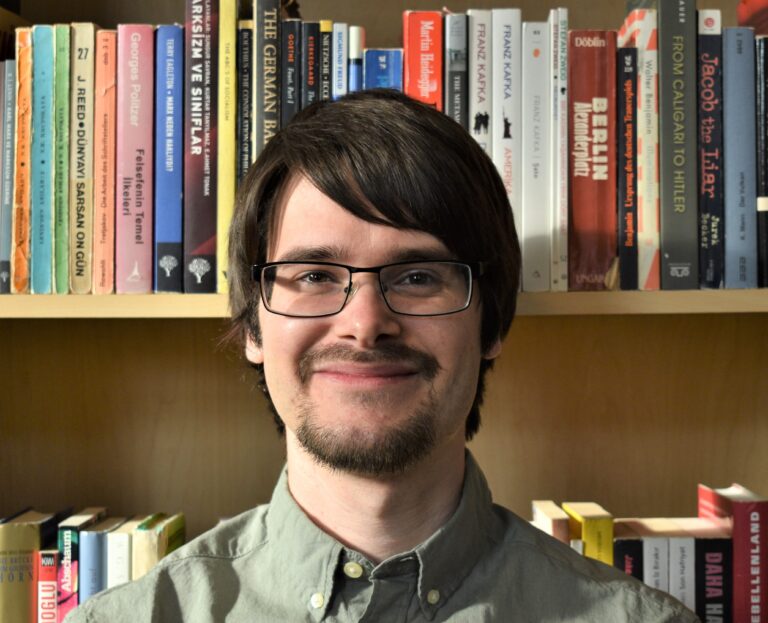
Graduate Spring 2022: Duncan Lien
Department of Comparative Literature and German
“Migrants of Germany Unite!” explores how bilingual writing strategies and socialist realism intersect in the works of Emine Özdamar, Aras Ören, Fakir Baykurt, and Yaşar Miraç. Offering a comprehensive account of the role socialist aesthetics played in the genesis of Turkish-German literature, I argue that bilingualism was essential to developing forms of realism adequate to Turkish settlement in Germany. My case studies focus on several crucial issues in multilingualism and translation studies, including how multiple languages are inscribed into an ostensibly monolingual text, how texts resist a sequential paradigm of translation, and the political stakes of translation. These case studies test and expand the theories and vocabulary used to discuss these issues. Furthermore, it becomes clear that the political claims of such techniques go far beyond challenging monolingual and monoethnic conceptions of the German and Turkish nations. The intersection of bilingualism and realism is a fertile space Turkish-German authors use to imagine novel collectivities across the borders of class, language, gender, and nation. Beyond offering a robust account of the Turkish-German literary scene and its place in the circuits of transnational literary production in the Cold War-era, my project considers how literature is a potent means of challenging received social identities and articulating new forms of collectivity.